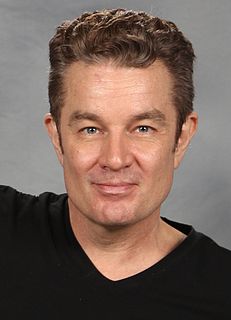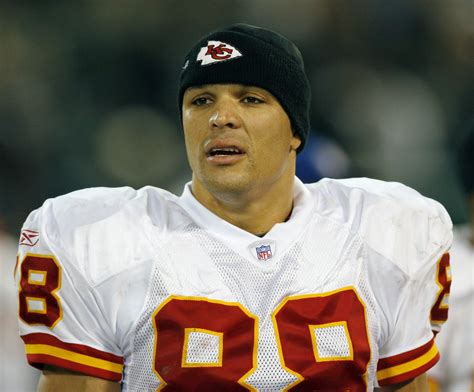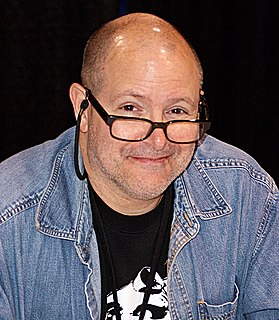A Quote by Damon Lindelof
Some of the things I love the most are when a writer or a visionary takes on sort of an iconic character and then spins it. Like with Frank Miller, Batman was this one thing for basically forty years, and then Frank Miller came along and said he can also be this other thing. And Christopher Nolan came along and said he can also be this other thing. The idea of taking iconic comic book characters or superhero characters or mythic characters and subverting the genre or coming up with a new idea is something that's really interesting to me.
Quote Topics
Along
Also
Basically
Batman
Book
Book Characters
Came
Character
Characters
Christopher
Comic
Comic Book
Comic Book Characters
Coming
Forty
Forty Years
Frank
Genre
Iconic
Idea
Interesting
Like
Love
Me
Miller
Most
Mythic
New
New Idea
Nolan
One Thing
Other
Really
Really Interesting
Said
Some
Something
Sort
Superhero
Takes
Taking
Then
Thing
Things
Things I Love
Up
Visionary
Writer
Years
Related Quotes
It's funny what [producer Richard Zanuck said about even though you can't quite place when the book or the story came into your life, and I do vaguely remember roughly five years old reading versions of Alice in Wonderland, but the thing is the characters. You always know the characters. Everyone knows the characters and they're very well-defined characters, which I always thought was fascinating. Most people who haven't read the book definitely know the characters and reference them.
Margaret Cavendish was one of the people who came up in the course. That was when I started thinking about her as a character for a book, but my idea was for a totally different book. It had all these characters in it; Samuel Pepys was one of the main characters. He famously wrote these extensive diaries through the period that are really funny and sort of saucy, actually.
The Batman that I loved growing up, the thing that Frank Miller did in 'The Dark Knight Returns,' is that he's so vulnerable and mortal in his 50s. That book was the first time I saw Batman as being really layered, human, and suffering, and worried that he wouldn't achieve what he wanted to achieve. Seeing him being obsessed and pathological.
We have a whole other division, where we actually literally take the comic book and animate it. Our feeling was that, if this was going to be our show and that it was going to be a brand new show, it has to be more adventures with these characters, in the same way that, through the years, there have been long runs on the comic book series. It's the same characters, with different voices, along the way.
'Thunderbolts' I was mostly attracted to because I really wanted to write Punisher and Elektra and Deadpool, who are characters I have always really enjoyed. But the funny thing is that over time, I came to really like Red Leader; he became one of my favorite guys in the book. Sometimes characters surprise you.
I look at all of world mythology and folklore as my toy to play with. There are just so many characters and creatures there I want to put on paper. It's a really exciting thing for me to take material that I really love and put a new coat of paint on it and present it to this audience. And I don't have to make up any of the characters. I can just pull a book of mythology off the shelf and say, "I'll use this guy." I also hate making up names for fantasy characters. I'll just flip through these books and say, "Wow, this is way crazier than anything I could make up".
For the most part, my characters don't talk to me. I like to lord over them like some kind of benevolent deity. And, for the most part, my characters go along with it. I write intense character sketches and long, play-like conversations between me and them, but they stay out of the book writing itself.






































